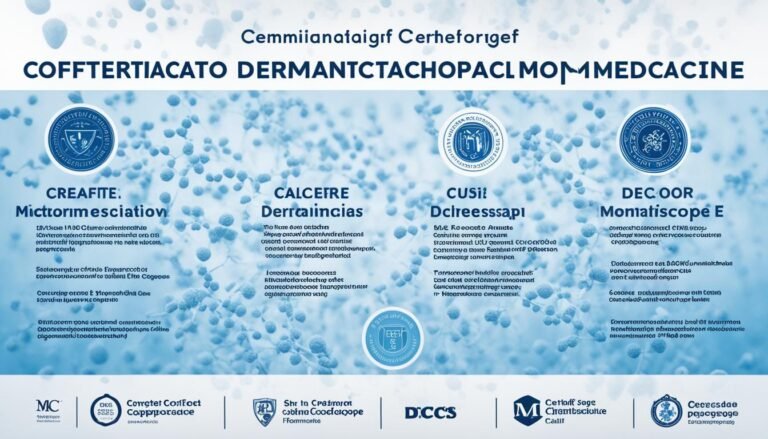What is a Critical Care Registered Nurse (CCRN)?
Critical care nursing is a very specialized field needing advanced skills. This is to provide life-saving care to the sickest patients. These nurses, known as CCRNs, are healthcare heroes. They look after seriously ill people in various places like intensive care units.
CCRNs know a lot and have experience in complex medical cases. They are key in intensive care units and emergency rooms. Their hard work and special training change lives. They are dedicated to their patients.
Key Takeaways:
- Critical care nursing is a highly specialized field that requires advanced skills and expertise.
- CCRNs play a vital role in providing life-saving care to acutely ill patients.
- CCRNs work in various healthcare settings, including intensive care units and emergency departments.
- CCRNs possess extensive knowledge and experience in treating patients with complex medical conditions.
- With their dedication and specialized training, CCRNs make a significant impact on the lives of those they serve.
Importance of CCRN Certification
CCRN certification is key for critical care nurses. It gives them many benefits and chances to grow professionally. It shows a nurse’s hard work and commitment to top-notch care. Also, it keeps nurses’ skills sharp in acute and critical care.
Studies often find a link between CCRN certification and high clinical skills. With this certification, nurses show they excel. They earn respect from peers, managers, and the patients they treat. This trust can make a big difference in patient care.
In the care of acutely ill patients, CCRNs are indispensable. Their work spans from giving advanced care to watching over patients’ health closely. They also make quick, life-saving choices. CCRN certification prepares them for these varied tasks.
“CCRN certification is a testament to a critical care nurse’s dedication and commitment to providing excellent care to acutely and critically ill patients.”
Benefits of CCRN Certification
For critical care nurses, CCRN certification is very rewarding. It boosts their confidence and validates their in-depth knowledge. They meet the standards of the American Association of Critical-Care Nurses (AACN). This brings a sense of pride.
CCRN certification also brightens their career prospects. They are more wanted in critical care units and can see better job offers. Employers value CCRNs for their unique skills. This leads to more job opportunities and promotions.
In the long run, CCRN certification pushes for ongoing learning and growth. Every three years, nurses can renew the certification by passing the exam or joining education programs. This keeps CCRNs updated with the newest in their field.
For many, CCRN certification marks a significant point in their career. It highlights their lifelong learning stance and their love for caring for those in need.
| Advantages of CCRN Certification |
|---|
| Enhances professional pride and achievement |
| Recognizes specialized knowledge in critical care nursing |
| Opens up career opportunities and increased job prospects |
| Higher salaries and financial growth potential |
| Boosts confidence and self-assurance in nursing abilities |
| Allows for continuous learning and professional development |
| Makes a significant impact on the lives of acutely/critically ill patients |
Eligibility Pathways for CCRN Certification
If earning a CCRN certification is your goal, you can pick from three different paths. Each one fits various nursing jobs in the critical care area. Here we’ll look at the main ways to be eligible for a CCRN certification:
1. Direct Care Pathway
The Direct Care Pathway suits nurses working directly with very ill or critical patients. This includes those in the ICU, CCU, or ER. It shows your skill in giving specialized care to those with serious health issues.
2. Tele-critical Care Pathway
The Tele-critical Care Pathway is for nurses caring for serious patients off-site through technology. Here, you show you can give critical care even from far away. Patients get the attention they need, no matter the distance.
3. Knowledge Professional Pathway
The Knowledge Professional Pathway suits nurses whose know-how improves care for serious patients. Here, your deep knowledge helps even if you’re not at the patient’s bedside. Your work makes a big difference in patient recovery and in making critical care nursing better.
Pick the pathway that matches what you do in nursing. Getting CCRN certified will prove your excellence and commitment in critical care.
CCRN Exam Details
The CCRN exam helps you get certified as a critical care nurse. It shows you know your stuff. Let’s dive into what you need to know about this exam.
Test Format and Structure
This exam is done on a computer. You can take it any time at many test centers all over the U.S. There are 150 questions, but only 125 count. The rest help with understanding how the test is working.
You will be tested on your clinical skills, professionalism, and ethics. This is all about taking care of patients the best you can. The test follows the AACN Synergy Model for Patient Care.
Accreditation
The CCRN exam is approved by the Accreditation Board for Specialty Nursing Certification (ABSNC). Its approval shows it meets high standards. This makes the certification process trustworthy.
Preparing for the CCRN Exam
To do well on the CCRN exam, preparation is key. First, get to know what the test is like. Use study tools and courses to boost your skills and knowledge.
Make a study plan that works for you. This will help you focus and use your time effectively.
“The CCRN exam is your opportunity to demonstrate your proficiency in critical care nursing and showcase your dedication to providing exceptional care to acutely and critically ill patients.”
Don’t just memorize facts. Work on your critical thinking. Understand how to apply what you’ve learned in real patient situations. Practice exams are great for this. They help you get ready for the real thing.
Study with friends or colleagues. Sharing knowledge and tips can make learning more fun and effective.
Image:
Yes, this test is tough. But it’s meant to check if you’re ready to be a critical care nurse. Go in with confidence. Your education and hard work will pay off.
Benefits of CCRN Certification
Getting CCRN certification boosts your professional journey and creates more career options. It gives critical care nurses valuable advantages. These include enhancing professional pride, boosting specialized knowledge, and proving your expertise to others. Let’s dive into the key benefits of CCRN certification.
1. Enhanced Professional Pride and Achievement
Earning your CCRN means you’re acknowledged for your deep understanding of critical care nursing. It shows you’re committed to excellence and boosting patient health. This certification makes you feel proud and confident in your skills as a critical care nurse.
2. Reinforcement of Specialized Knowledge
Preparing for the CCRN exam helps you understand crucial concepts in critical care nursing. The exam covers many topics, keeping your knowledge current. This helps you take even better care of patients.
3. Validation of Expertise
CCRN certification proves your expertise to many, like hospital leaders, coworkers, and patients. It validates your skills, marking you as a reliable and dedicated professional. Employers look highly on certified nurses because of the value they add to teams.
4. Three-Year Recognition and Renewal
Your CCRN certification is valid for three years. During this time, you can proudly show your achievement. After three years, you can renew the certification by retaking the exam or fulfilling continuing education credits.
5. Career Advancement and Increased Job Prospects
CCRN certification distinguishes you in the field of critical care nursing. It makes you more appealing for advanced positions and leadership roles. Having this credential can lead to better jobs, higher pay, and most importantly, positively affecting patients’ lives.
“CCRN certification opens doors for critical care nurses, allowing them to grow and advance in a field that truly makes a difference. The benefits reach far beyond personal success and professional development. They also positively impact patient care and specialized care in critical settings.”
Renewal and Maintenance of CCRN Certification
Getting and keeping your CCRN certification is vital for nurses. They must keep their skills and knowledge up to date in the critical care nursing field. This ensures the certification remains valid and relevant.
To keep their CCRN, nurses need an active and clean RN or APRN license. This shows they’re working within their allowed scope and meeting licensing rules.
Two ways exist to renew your CCRN certification. The first is by retaking the CCRN exam. This test covers clinical judgment, caring, and ethical practices. Retaking it shows a nurse’s dedication to high-quality care for very sick patients.
The other renewal path is through the Renewal by Synergy CERP program. This needs 100 CERPs earned in critical care topics. You can get CERPs from seminars, workshops, online classes, and self-study. Continuing education helps CCRNs stay sharp and updated in critical care nursing.
Keeping your CCRN certification current is key for providing the best care to very sick patients. It shows a nurse’s commitment and ability to use the latest evidence in their practice. By keeping up, CCRNs can handle the challenges of critical care nursing confidently.
| Renewal Options | Requirements |
|---|---|
| Retaking the CCRN Exam | Pass the comprehensive CCRN exam |
| Renewal by Synergy CERP program | Earn a minimum of 100 CERPs in critical care nursing |
CCRN Certification and Board Certification
The CCRN certification is a big deal, showing that nurses are experts in critical care. It’s not exactly like a physician’s board certification. Still, it’s nationally known and shows advanced skills. To take the exam, nurses must have a valid RN or APRN license.
Understanding CCRN Certification
The AACN Certification Corporation gives out the CCRN certification. It’s a mark of excellence in critical care, showing a nurse is highly skilled. Nurses with this certification know how to care for seriously ill patients well. CCRN is seen as a top-notch achievement in nursing.
The CCRN certification program is set and overseen by the AACN Certification Corporation. Its directors make sure the certification keeps up with the latest in critical care. This way, nurses always provide the best care they can to patients.
The Importance of a Current RN or APRN License
Nurses aiming for CCRN need a valid RN or APRN license. This is to ensure they’re well-educated and trained to give critical care. Without this license, they can’t qualify for the CCRN exam.
The RN or APRN license is critical for CCRN because it proves a nurse is legally able to treat patients. It also stands for following all nursing rules and standards.
CCRN Certification and Expertise in Critical Care Nursing
Getting the CCRN shows a nurse is not just skilled but specialized in caring for critically ill patients. They understand complex care and have advanced knowledge. This makes them valuable in different healthcare settings.
Certified nurses get deep into critical care topics, like how to handle acute issues and save patients’ lives. They’re the ones you want in critical situations.
Continuing Excellence in Critical Care Nursing
CCRN isn’t just a one-time thing; it’s about ongoing excellence. It pushes nurses to always improve and learn more about critical care. Nurses with CCRN aim to always be at the top of their game.
CCRN-certified nurses lead the way in using what works best for patients, improving outcomes, and keeping care safe in critical settings.
Advantages of Being a CCRN
Becoming a CCRN has many benefits for those in critical care nursing. They have key knowledge and skills for treating very sick patients. This allows them to really make a difference in their patients’ lives.
One advantage is the wide range of roles CCRNs can take on. They can work in ICUs, caring for those with severe illnesses. They also might work in emergency departments, where they help to save people’s lives.
CCRNs have more job options and can earn higher salaries. Their certification makes them valuable to hospitals. They are often well-compensated with good benefits because of this demand.
But most importantly, being a CCRN is deeply rewarding. They are proud of their skills in helping very sick individuals. These skills allow them to directly impact patient health, often saving lives.
In summary, being a CCRN is very advantageous in the nursing world. They bring advanced skills and knowledge to patient care. Their work in critical care settings is essential and greatly valued in the healthcare field.
Conclusion
Becoming a Critical Care Registered Nurse (CCRN) through CCRN certification is big in the nursing world. CCRNs provide vital care to very sick patients with skill and dedication. Their certification shows they’re serious about keeping their knowledge fresh.
CCRN certification proves a nurse is good at what they do. It also helps them grow in their career, offering more job options. They can work in places like intensive care units, surgical ICUs, and emergency departments. Here, they can truly change the lives of those who are very ill.
CCRN certification is not just a fancy title. It brings personal pride and a sense of achievement. It helps nurses feel more sure of their abilities and encourages them to aim for excellence. By always learning new things, CCRNs help improve patient care and grow the whole field of critical care nursing.







